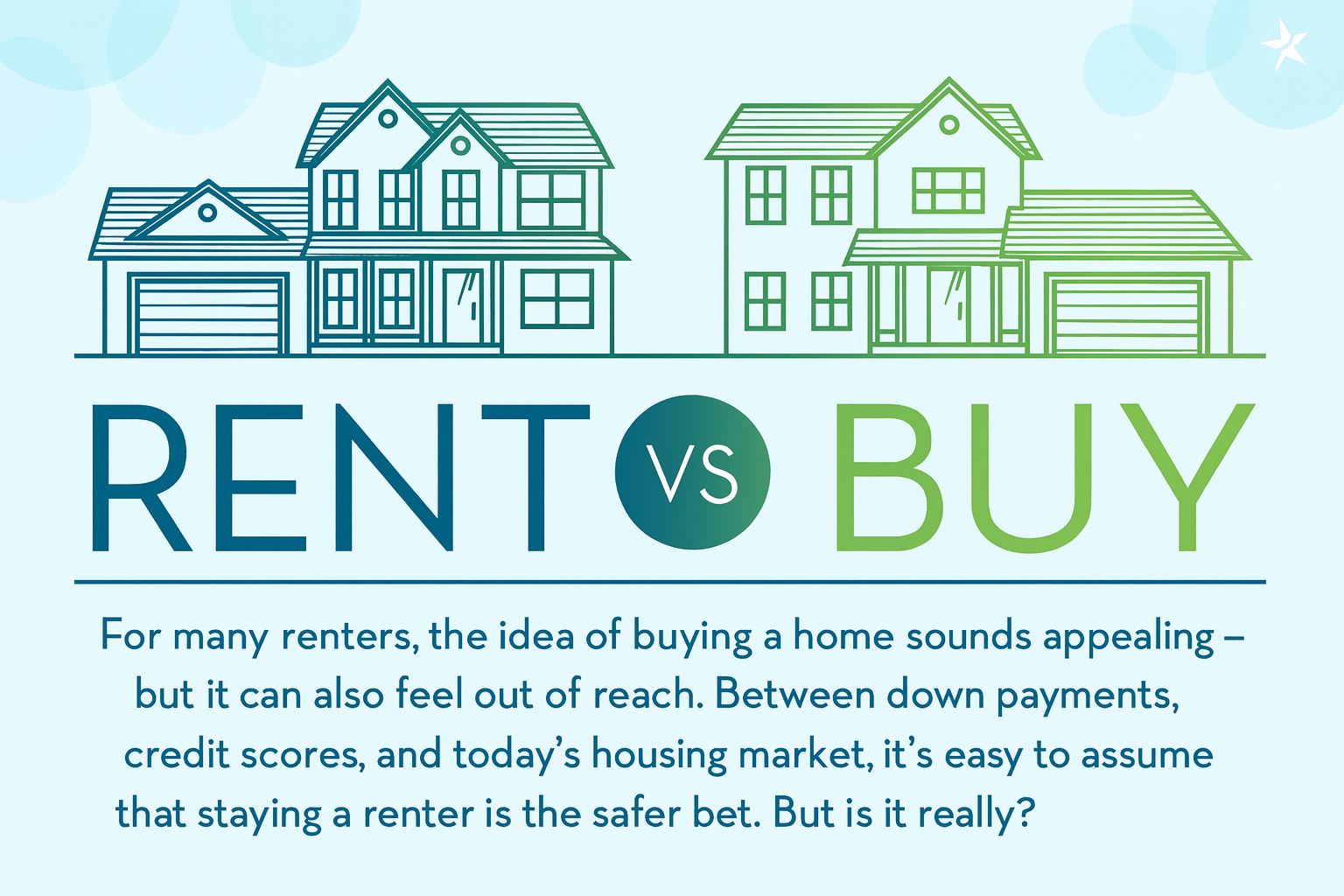Rent or Buy? What to Know Before Making Your Next Move
For many renters, the idea of buying a home sounds appealing — but it can also feel out of reach. Between down payments, credit scores, and today’s housing market, it’s easy to assume that staying a renter is the safer bet. But is it really?
Let’s walk through a clear comparison of renting versus buying — not just the obvious numbers, but the long-term benefits and trade-offs, too.
1. Monthly Costs: Is Buying More Expensive?
In the Hampton Roads area, rental prices can vary widely based on location, size, and amenities. But it's not uncommon to see monthly rent in the $1,800–$2,400+ range for a typical single-family home or larger townhome — especially in areas like Chesapeake, Virginia Beach, and Suffolk.
With today's interest rates and first-time buyer programs, many qualified buyers could be paying a similar amount in monthly mortgage payments — particularly when using FHA loans, VA loans, or other low down payment options. In some cases, mortgage payments (including taxes and insurance) are within a few hundred dollars of what renters already pay.
And unlike rent, a mortgage payment can be fixed. While rent tends to increase every year, a fixed-rate mortgage stays the same — helping buyers plan ahead and avoid annual surprises.
2. Upfront Costs: Security Deposit vs. Down Payment
Renters typically pay:
- First month’s rent
- Security deposit (often equal to 1 month’s rent)
- Possible application or pet fees
This could easily total $3,000–$5,000 just to move in.
Many renters don’t realize that certain home loans allow for down payments as low as 3%, and some down payment assistance programs can help reduce that even further. For qualified buyers, the gap between move-in costs for renting vs. buying might be smaller than expected.
Kim also works closely with a local lender who specializes in helping first-time buyers explore low down payment options — even for those with average credit.
3. Building Wealth Over Time
When you rent, 100% of your payment goes to the landlord. You build no equity, and your money doesn’t come back to you.
When you buy, each mortgage payment helps pay down your loan and increase your ownership in the home. Over 5–10 years, this equity can grow substantially — especially if property values rise.
Even modest appreciation or steady loan payoff can lead to tens of thousands of dollars in long-term wealth. Renters miss out on this entirely.
4. Stability and Control
Renters may face unexpected moves if a landlord decides to sell or raise rent beyond budget.
Homeowners:
- Control how long they stay
- Can renovate, personalize, and improve the property
- Avoid the uncertainty of lease renewals
For many, buying a home isn’t just about finances — it’s about having a place to settle, grow, and call your own.
5. Responsibility: Yes, There’s Maintenance
Owning a home does come with new responsibilities: lawn care, repairs, property taxes, and more.
But Kim works with many buyers who start small and manageable. Plus, she helps connect new homeowners with home warranty options and budget-friendly service providers, making the transition smoother.
6. When Renting Still Makes Sense
Buying isn’t right for everyone — and that’s okay.
Renting may be the better option if:
- You plan to move within the next 1–2 years
- Your job or income is currently unstable
- Your credit needs significant repair
- You’re saving aggressively but not ready just yet
But if you’re planning to stay in the area, are paying $2,000+ in rent, and have decent credit and income, it’s worth having the conversation to see what’s possible.
7. Curious Where You Stand?
If you’ve ever wondered what buying might look like for you — even a year or two down the road — Kim can help.
Ask for:
- A Rent vs. Buy Comparison based on your current monthly rent
- A First-Time Buyer Checklist with all the basics
- A free intro to a lender who specializes in working with renters


